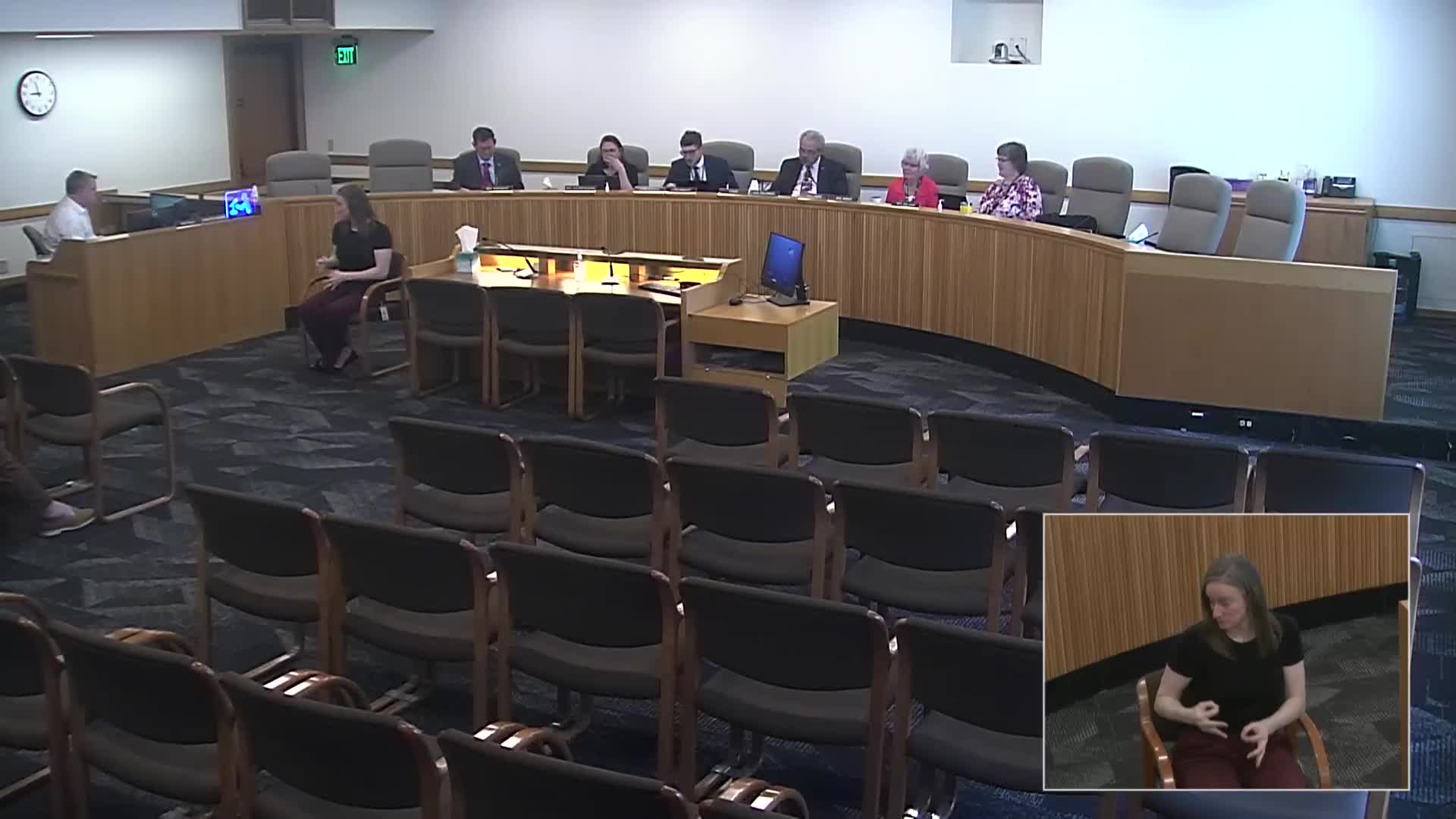Ethics commission warns school‑board conflict bill could block boards from acting; ESDs say enforcement would overburden them
Get AI-powered insights, summaries, and transcripts
Subscribe
Summary
The Senate Education Committee heard testimony on SB 4‑72, which would require school board members to abstain from votes when an actual conflict of interest exists and empower education service districts to adjudicate complaints. The Oregon Government Ethics Commission and ESD representatives raised legal and practical concerns.
Senate Bill 4‑72, explained to the committee March 26, would require school board members to abstain from votes when an actual conflict of interest exists and would task Education Service District (ESD) boards with adjudicating complaints that a school district violated the conflict‑of‑interest rule. The measure would allow appeal of ESD findings to the State Board of Education and provides penalties for noncompliance.
Susan Myers, executive director of the Oregon Government Ethics Commission, said the commission is not taking a position on the policy but raised legal concerns about the bill as drafted. Myers told the committee that the bill could prevent a school board from transacting business under the “minimum vote” exception to conflict rules: if a majority of a board has actual conflicts, the bill as written could leave the board unable to adopt budgets or conduct other essential business. Myers also warned the committee that the bill could produce conflicting determinations if ESDs and the State Board make one determination while the Ethics Commission, after a complaint, reaches a different conclusion.
Lori Satinsville, representing Oregon Education Service Districts, testified in opposition. Satinsville said ESDs lack resources and statutory authority to adjudicate conflict complaints and that assigning that role to ESDs would “fundamentally disrupt” ESD relationships with local school districts. She described the administrative burden and staffing implications of investigating and resolving disputes that the Ethics Commission currently handles.
Committee members asked whether a specific local incident prompted the proposal; witnesses said the bill was brought at the request of an individual connected to a single district but did not provide a public example in committee testimony. Senators asked whether current disclosure obligations and the Ethics Commission’s enforcement process are sufficient; Myers and other witnesses said school board members already file disclosures and the commission has authority to investigate complaints.
No vote was taken at the hearing. Committee members and witnesses discussed possible amendments that would preserve the Ethics Commission’s investigatory role, avoid leaving boards unable to act, and limit new enforcement duties for ESDs.
Ending: The committee closed the hearing on SB 4‑72 and did not advance the measure. Witnesses invited the sponsor and staff to work on redrafts to address conflicts between the bill’s enforcement scheme and existing ethics statutes.
